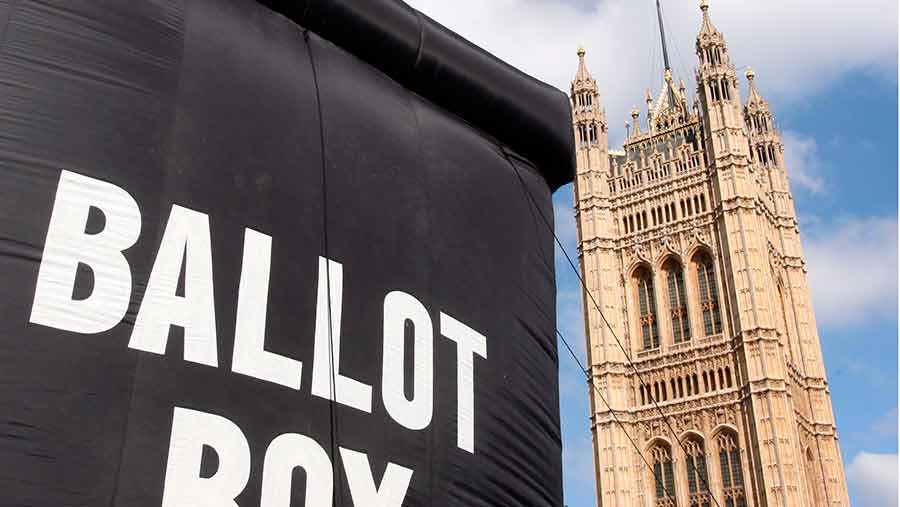Farmers shift from Ukip to the Tories, poll reveals
 © REX/Shutterstock
© REX/Shutterstock Support for the Conservatives among farmers has grown since the last general election, with those who voted for Ukip in 2015 seemingly switching allegiance now that the Brexit vote has been won.
Those are among the findings of a Farmers Weekly poll conducted online over the past week to determine farmer voting intentions in the run-up to the 8 June election.
See also: Conservative manifesto pledges to extend funding for farmers
According to the FWi survey, 72% of all respondents said they would be voting Conservative, compared with 10% who plan to vote Labour and 8% who will opt for the Liberal Democrats.
But splitting out farmers from non-farmers among the 700 respondents, it emerges that 77% plan to vote Tory, with the Lib Dems the second most popular choice at 8%. Labour is attracting just 4% of the farming vote.
Among non-farmers – which includes consultants and merchants – it’s a slightly more even spread, with Conservatives appealing to 57%, Labour 26% and Lib Dems 7%.
Compared with a similar poll conducted by Farmers Weekly ahead of the 2015 general election, the most significant trend has been the shift away from Ukip.
In 2015, Ukip attracted 11% support in the poll, with the Conservatives on 59% and the Lib Dems languishing with just 3%.
“It seems that the Conservatives are the big winners, with FWi users who had previously supported Ukip switching allegiance now that the aim of leaving the European Union has been achieved,” said Dan Hopper, head of customer insight for Proagrica, Farmers Weekly’s parent group.
“But the Lib Dems are also doing better, perhaps drawing support from those who are still disaffected with the Brexit decision.”
Regional split
It is also evident that farmer support for the Conservatives is spread pretty evenly across the country.
According to the survey, the strongest Conservative support among farmers is to be found in the North East (88%), the Midlands (86%) and the North West (82%).
This is in contrast to the national picture, where traditionally the Conservatives tend to be strongest in the south of the country, while Labour does better in the Midlands and the north.
“This suggests that many are voting with Brexit in mind and may see Theresa May as the person most likely to negotiate a good deal with Europe,” suggested Mr Hopper.
The survey shows that voter age makes little difference to party choice within the rural sector, but gender plays more of a part, with 74% of men surveyed planning to vote Conservative, compared with 61% of women.
Three times as many women (22%) said they would vote Labour as did men (7%).
In total, the survey attracted over 700 participants, with a strong majority being farmers.
- The FW poll is still open if you want to add your voting intentions
